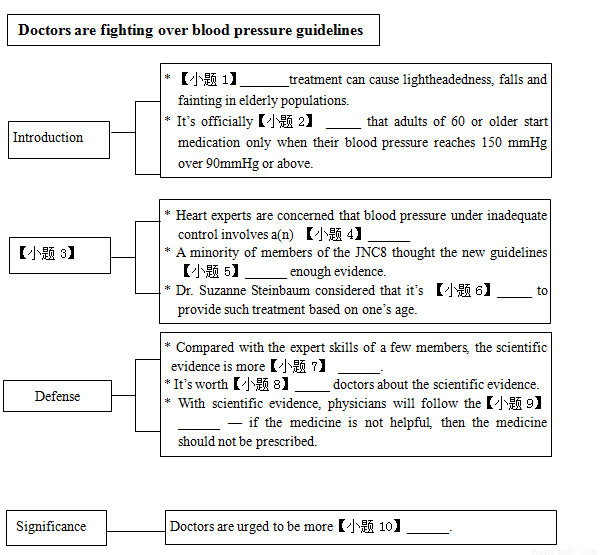题目内容
A promising approach to reducing appetite which does not ________ taking any drugs, and is very safe, is to drink a certain amount of water before a meal.
A. suggest B. involve C. prevent D. practice
练习册系列答案
 每日10分钟口算心算速算天天练系列答案
每日10分钟口算心算速算天天练系列答案
相关题目


